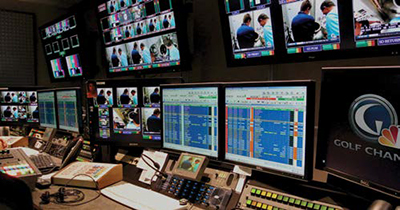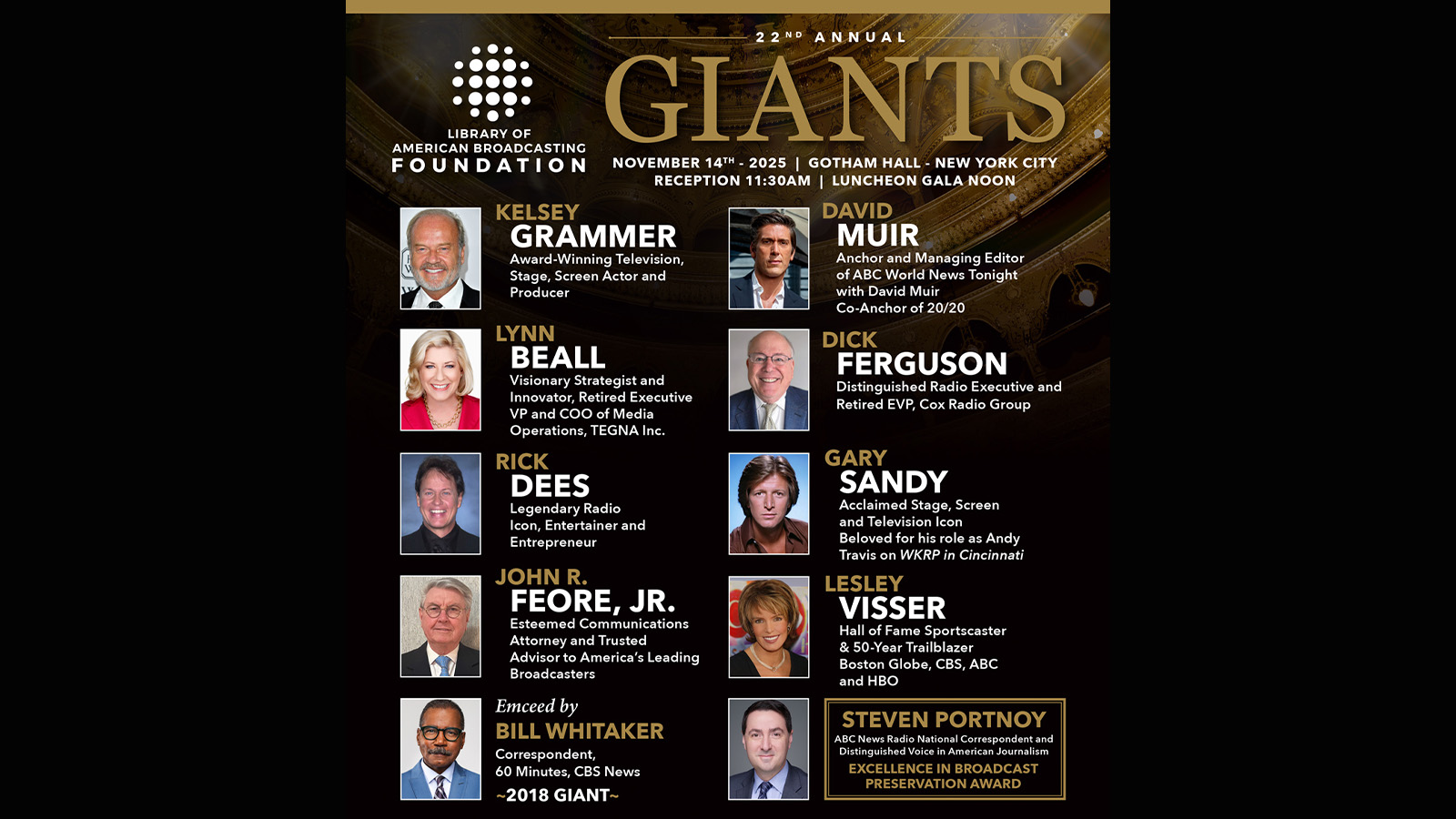Golf Channel Adopts Sony Optical Disc Archive

Golf Channel has installed two ODA PetaSites, configured with Sony’s ODS-L30M Master Library Unit and five expansion units per rack.
ORLANDO, FLA.—Golf Channel, a member of the NBC Sports Group, has become the first facility worldwide to adopt the Sony ODA PetaSite system, an automated optical-disc archival solution using Blu-ray media. The project is the culmination of a two-year collaboration between Sony and the Golf Channel engineering staff to tailor a solution that fits their workflow. The implementation was managed by Dan Overleese, vice president of operations and Ken Botelho, senior director, engineering for Golf Channel.
Golf Channel is a completely file-based operation and had adopted Sony’s original PetaSite LTO-based tape archival system eight years ago. “During that time, we realized that LTO was not the ideal solution,” said Botelho. “Mylar tape stretches and LTO lacks backward compatibility. We ended up changing through various LTO formats, from LTO 2 to LTO 5. When Sony announced the end-of-life for LTO support, we decided to look for alternatives. Sony’s move to optical disc media was the answer for a long-term archive, but the ODA system was in its infancy when we first saw it.”
According to John Studdert, vice president, sales and marketing for Sony, “Until ODA came along there really wasn’t a robust and viable alternative to LTO archiving. Ken and Dan have been real visionaries. Golf Channel was the first to adopt a complete end-to-end XDCAM workflow to get to air more quickly. They not only adopted our workflow, including the use of proxies, but they even expanded upon it. We couldn’t have had a better partner in developing the optical archive solution.”
ACCESS TO ACTIVE ARCHIVES
There are many benefits to optical media. It is impervious to magnetism, moisture, humidity, UV radiation and corrosive gases. LTO tapes are rated for 250 end-to-end read/ write passes, whereas Sony’s optical media is rated for more than one million, since it uses a laser and no physical head. Random access and partial file restore is also better and faster. The Sony ODA system uses a small cartridge that holds 12 discs for a capacity of 1.5TB (write-once) or 1.2TB (rewriteable). These cartridges include embedded RFID tags for tracking. Studdert added, “Unlike other archives, which are back-ups that stay in storage, Golf Channel’s is an active archive that is accessed often. This makes the ROI considerably more attractive than an LTO solution.”
In recent years, Golf Channel has positioned itself on the cutting edge of today’s technology in all broadcast areas. Its exclusive file-based workflow allows for large amounts of content data to be pushed to various server-based systems from acquisition to deep archive. The facility’s workflow has at its heart a massive Avid ISIS shared storage network. Golf Channel’s original content production includes tournaments, promos, studio shows and location- based entertainment, including golfthemed “reality TV” shows. The preferred format is XDCAM-HD for field production, but these discs are reused and not stored on the shelf.
Get the TV Tech Newsletter
The professional video industry's #1 source for news, trends and product and tech information. Sign up below.

Golf Channel’s master controlTHE WORKFLOW
All programming, including satellite feeds, unedited XDCAM-HD footage and finished masters end up on the ISIS. From there, proxy media is generated and held on separate servers. Producers can search these proxies at their desks. The full-resolution media from ISIS is then archived to the PetaSite system through a transcoding unit manufactured by Front Porch Digital. Data on the LTO tapes—and now the discs—is stored in a proprietary codec. This workflow is controlled by a custom asset management system created by IPV.
Golf Channel purchased two ODA PetaSites, configured with Sony’s ODS-L30M Master Library Unit and five expansion units per rack. Each contains eight ODS-D77F Fibre Channel optical disc drives. One PetaSite will be used for migration of the existing LTO archive to optical disc, while the second is assigned to new content.
According to Overleese, “We typically cover five golf tours and record for at least four days a week, plus our normal load of original programming. The existing archive holds five years worth of media. We have 115,000 hours of content that must all be migrated to the new PetaSite.” Botelho’s conservative estimate is that this migration will take five years.
Botelho and Overleese were extremely impressed with the level of involvement Sony offered in this changeover. “We’ve had routine development meetings with Sony’s engineering design team for two years,” Botelho said. They’ve sent up to 15 engineers to be here onsite to make sure the system performs up to spec. In fact, Sony went outside of its broadcast division into other divisions, to bring in the best expertise within the company. The robotics modules used in PetaSite are an example of this commitment to making a system that’s robust and reliable in a 24/7 broadcast network environment.” Golf Channel’s filebased workflow and optical disc archive will likely become a model that other networks will follow.
The system was officially inaugurated at a ribbon cutting ceremony on March 26. Sony executives, including Shoji Nemoto, executive vice president and senior corporate executive officer for Sony, flew in from Japan to mark the occasion.
